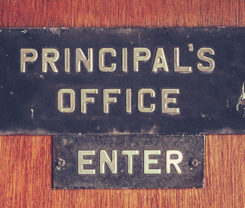Some school councils prefer to not have by-laws because they feel it will formalize their meetings. They prefer a more social meeting structure. By-laws are simply a tool to assist in making effective decisions for your school council. It doesn’t have to change the social atmosphere of meetings.
According to Regulation 612 (15.1) school councils may establish by-laws, but does not say that they shall establish by-laws. School Board policies vary from board to board and may require every council to have by-laws.
If a school council does have by-laws they must include the following according to Regulation 612 (15.2):
- A by-law that governs election procedures and the filling of vacancies. The election procedure clause must comply with Regulation 612 S.4.
The vacancy clause must state if vacancies will be filled in one of two ways:- by “appointment”, meaning council members can simply appoint new parents to fill vacant positions
- by “election”, meaning new parents can only be added to the council by the same election procedure used to establish the council at the beginning of each school year.
- A by-law that establishes rules respecting participation in school council proceedings in the case of conflict of interest. This clause would require a council member to declare any personal connection they have to an item being discussed or voted on.
- A by-law that in accordance with any applicable policies established by the Board that established the council provides a conflict resolution process for internal school council disputes.
Why do school councils need by-laws?
Protection – strong by-laws help protect councils from internal and external conflicts. If the method used to arrive at a decision is questioned, being able to point to the by-law regarding the process of presenting and voting on a motion (provided it has been followed) is valuable to settle inquiries.
Consistency – rules and policies take the emotion and personalization out of how to do things year after year.
Efficiency – having procedures for making decisions allow more business to get done by the school council every meeting. For instance, you may place a time restriction on how long a member can speak on any one topic/motion being considered by the council. This prevents one person from taking over a meeting.
Legitimacy – by-laws can provide a sense of importance for a school council. It gives community members a better understanding that important decisions are made by the school council, since many people see them as just a “social group” who plan events at the school.
Process for amending by-laws.
- Make sure that everyone understands the by-laws as they stand at present. If there seems to be some uncertainty by several members it would be helpful to run a session on by-laws. Invite a staff person or other expert on the topic to educate members on what needs to be included by regulation, as well as other standard or board required clauses. Even members who have been part of a council for years get accustomed to seeing the standard clauses included in their by-laws, but may not have a full understanding of how they would apply in certain circumstances. A full review of the by-laws may be beneficial for all when this is the case.
- School council by-laws should state a process for amendments to be made. This would include when, why and how revisions are made to the existing by-laws. This clause, or as a separate section under the main clause, should include the percentage of votes (Robert’s Rules of Order requires 2/3 of votes to approve a revision to a by-law) required to pass an amendment to the by-laws.
Note: this clause should also include the method and timing that the community will be notified that the council will be considering by-law revisions. - The revision should be presented in the following format:
- The proposed amendment exactly as written.
- The current by-law.
- The by-law as it will be read if the amendment is adopted.
- Notice should also include the proposer’s names and the rationale for offering an amendment.
- The amendment cannot exceed the proposed by-law that the notice applied to. Simply this means that if a motion is made to amend the by-laws to increase the number of voting members from 8 to 12; the council cannot decide to increase it to 15 instead while dealing with this specific amendment. That would require a separate notice of amendment.
If you are on a council that has by-laws take this time to review them. Make sure that they still apply to the makeup and work of your school council. If you do not have by-laws, now is a good time to learn and consider implementing them for your school council.
Still have questions regarding by-laws?
After reading this article, do you still have some questions regarding your school councils by-laws? Not to worry Parents Engaged in Education has you covered. Please check out our newsletter archive. We have past newsletters that contain information on regulation 612 and school council by-laws. If you still can’t find the information you are looking for, be sure to check out our parent engagement forum and reach out to other parent council members.
Like this article? Be sure to share it with other parents and school councils. Use the share buttons above and below this article.






